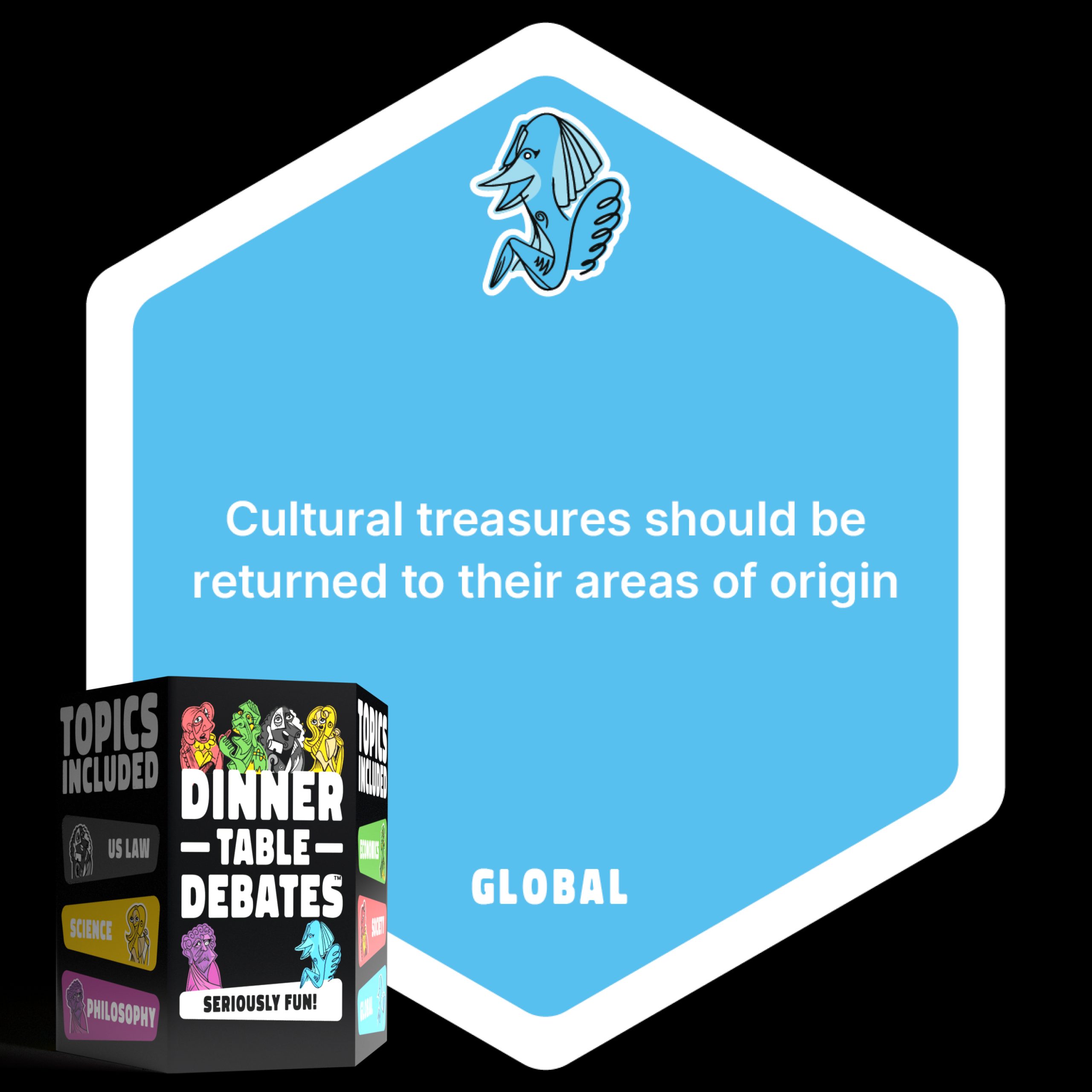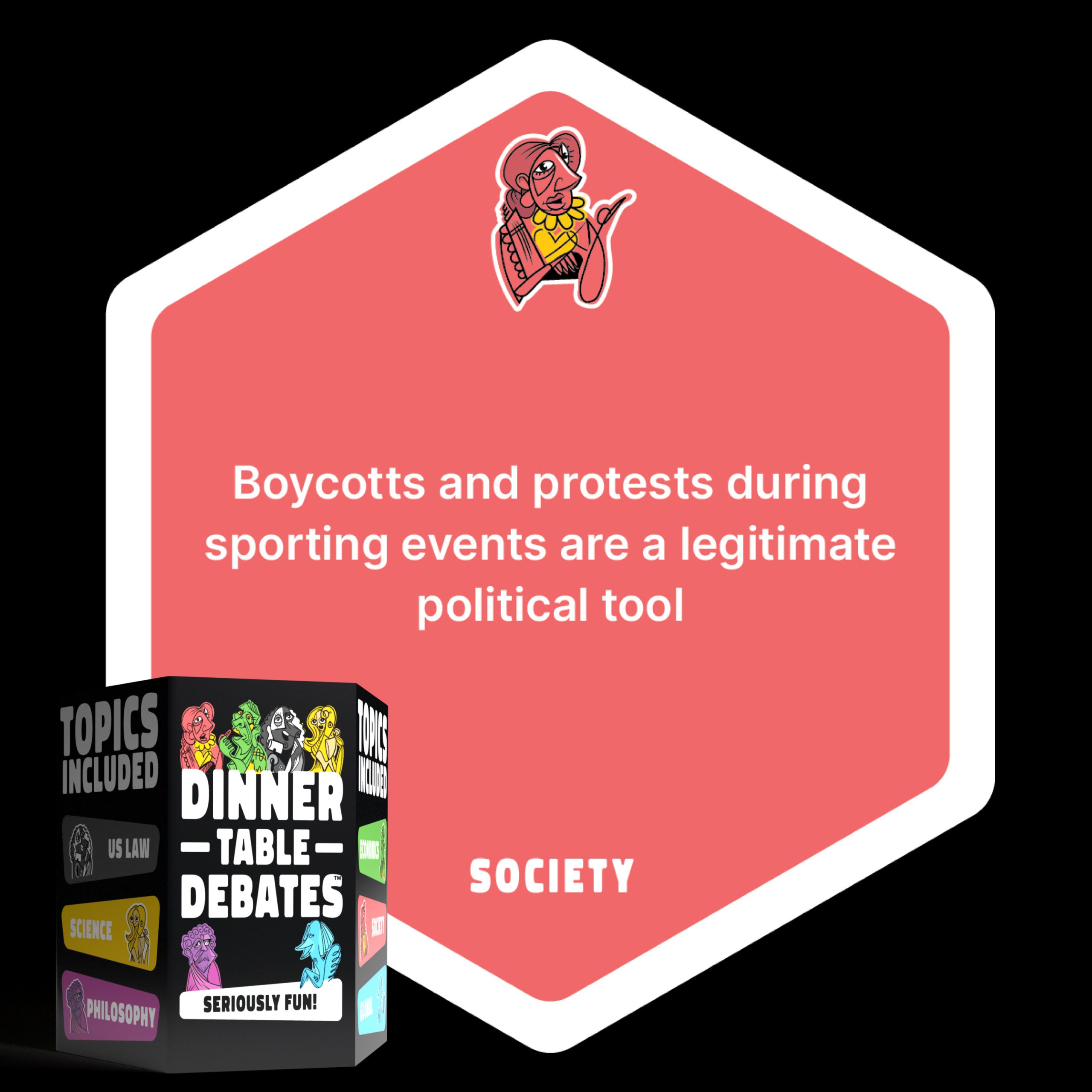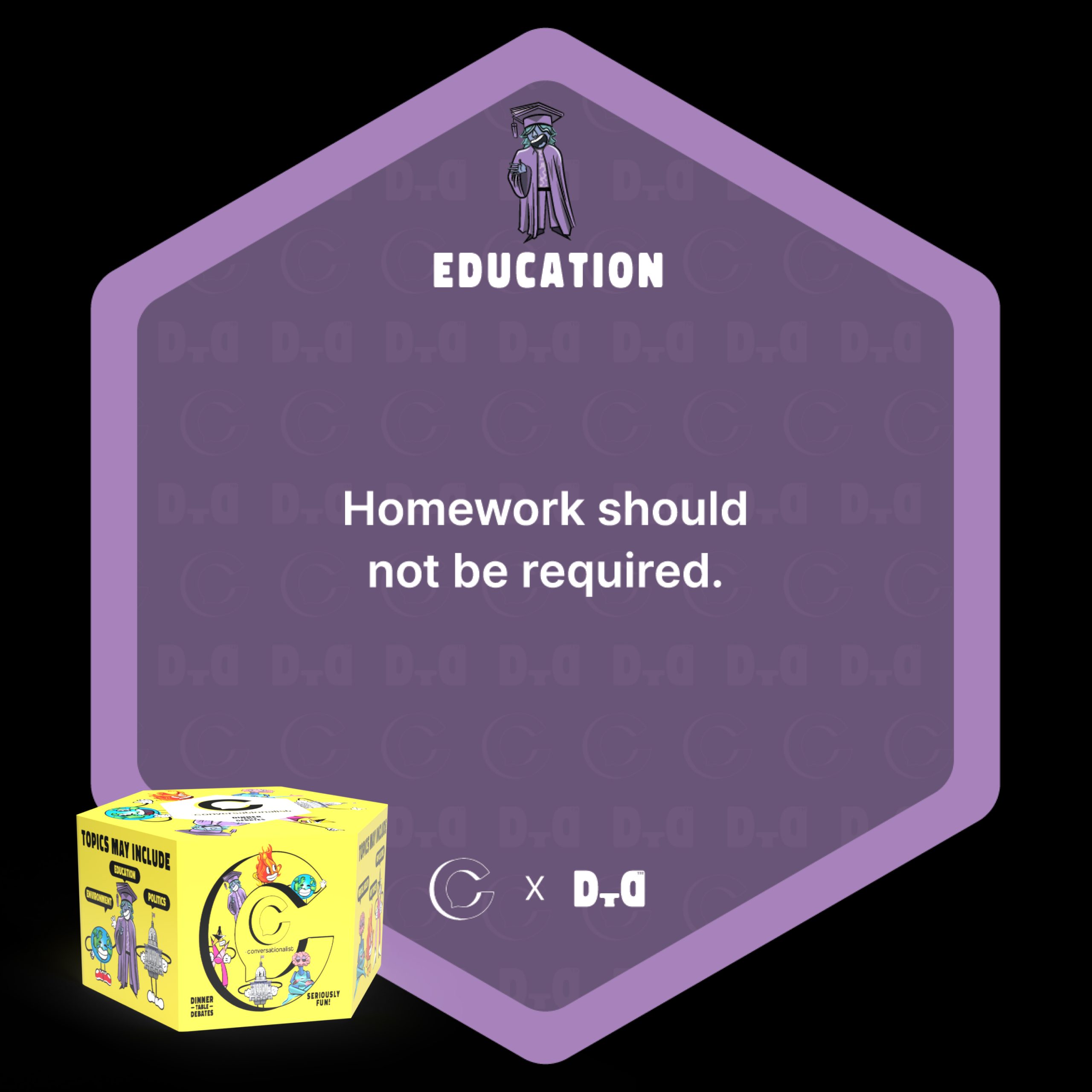Imagine you’re a journalist working on an investigative piece about a powerful corporation. You uncover evidence of illegal dumping that’s harming the environment and local communities. The only problem is, the evidence you have was obtained through questionable means—you hacked into a private server. Revealing this information could stop the crime and hold the corporation accountable, but it also puts you at risk of legal repercussions. So, is it worth breaking the law to expose a crime?
Welcome to your Dinner Table Debates Daily Deep Dive, where we explore real topics from our decks and give you everything you need to debate, in under 10 minutes. Today's topic is 'Breaking the law to stop a crime or catch a criminal is justified' and it comes from the Philosophy category in our Full Size Essentials Collection deck. Let's dig in.
The idea of breaking the law for a greater good isn't new. Philosophers and ethicists have long debated the concept of civil disobedience. Henry David Thoreau, in his famous essay “Civil Disobedience,” argued that individuals have an obligation to resist unjust laws. Similarly, in Plato’s “Crito,” Socrates discusses whether it is ever right to disobey the law, suggesting that sometimes the moral law supersedes the written law. This theme also appears in more contemporary settings, such as the actions of whistleblowers like Edward Snowden, who broke the law by leaking classified information to expose government overreach.
This topic is crucial because it touches on the tension between legality and morality. How do we balance the need to uphold the law with the imperative to achieve justice? This debate is relevant not only for law enforcement and government officials but also for everyday citizens who might face moral dilemmas where breaking the law seems like the right thing to do. It challenges us to consider what kind of society we want to live in and what values we prioritize.
5. Debate Points:
Agree:
1. Greater Good Argument: Breaking the law can be justified if it prevents greater harm. For example, undercover police officers often engage in illegal activities, such as drug deals, to infiltrate criminal organizations and bring them down. These actions, while technically illegal, are aimed at protecting society from far more significant crimes, such as trafficking or terrorism.
2. Moral Duty: In some cases, individuals may feel a moral obligation to break the law to prevent injustice. Consider the case of whistleblowers who expose corruption or human rights abuses. They might leak classified information, which is illegal, but their actions can lead to positive changes, greater transparency, and justice for victims. The Nuremberg Trials after World War II set a precedent where individuals were held accountable for crimes against humanity, even if they were following their country's laws.
3. Ineffectiveness of Legal Systems: Sometimes, legal systems are too slow or ineffective in preventing imminent harm. Breaking the law might be the only option to avert a disaster. A hacker who disables a terrorist group's communication network to prevent an attack, although committing a crime, might save lives. In these urgent situations, waiting for legal processes could lead to catastrophic outcomes.
Disagree:
1. Rule of Law: Upholding the rule of law is fundamental to maintaining order and justice. If individuals start breaking the law based on their own judgment, it leads to chaos and undermines the legal system. The law is designed to apply equally to everyone, and once we allow exceptions, it becomes difficult to draw the line. The integrity of the justice system is compromised, and trust in law enforcement is eroded.
2. Slippery Slope: Allowing law-breaking for seemingly good reasons sets a dangerous precedent. It can lead to abuses of power where individuals justify their illegal actions under the guise of achieving a greater good. History has shown that such justifications can lead to tyranny and oppression. For example, authoritarian regimes often justify their oppressive actions as necessary for national security or public order.
3. Moral Relativism: Deciding when it's acceptable to break the law is subjective and can vary greatly from one person to another. What one person sees as a necessary action, another might view as unjustifiable. This inconsistency can lead to conflicts and societal division. Laws exist to provide a clear standard of behavior; without them, moral relativism prevails, leading to ethical confusion and disagreement.
- Rebuttal to Agree Point: While breaking the law for the greater good sounds noble, it’s important to remember that legal systems have mechanisms in place for change. Civil disobedience should aim to change laws not just force behaviors and they should do it through awareness and advocacy, not through illegal actions. Otherwise, it risks undermining the entire system of justice.
- Rebuttal to Disagree Point: However, rigidly adhering to the law can sometimes perpetuate injustice. Legal systems are not infallible; they can be flawed or corrupt. In these cases, breaking the law might be the only way to correct an injustice and bring about real change. It's about balancing legal obedience with moral integrity.
The debate over breaking the law to stop a crime or catch a criminal is complex and nuanced. On one hand, breaking the law can be justified by the need to prevent greater harm, fulfill moral obligations, or act in situations where legal systems are ineffective. On the other hand, maintaining the rule of law, avoiding the slippery slope of justifying illegal actions, and preventing moral relativism are crucial for societal order and justice. This is a topic that requires careful consideration of the context, the laws in question, and the potential consequences. What decision do you think you’d make in your real life? What about your friends or parents or influencers or celebrities you like, what decisions would they make and would you agree?
Eager to explore this topic further? When you’re playing Dinner Table Debates at home, the Agree side gets to shape the discussion by defining the terms and context. This leads to a unique and stimulating debate every time. If you’re debating “Breaking the law to stop a crime or catch a criminal is justified,” here are a few ways Agree could frame the conversation:
Breaking the law is justified for whistleblowers: Should individuals who break the law to reveal significant illegal activities or corruption be considered justified? What protections or considerations should be given to whistleblowers who act outside the law to expose greater harm?
Breaking the law with Violent demonstrations is justified: Are demonstrations that turn violent ever justified if they aim to prevent or address serious crimes or systemic injustices? How should we evaluate the balance between the use of force and the pursuit of justice in these situations?
Law enforcement actions that break the law to catch criminals are justified: Should law enforcement officers be allowed to break the law in exceptional situations to stop a greater crime or catch dangerous criminals? What are the boundaries and ethical considerations for law enforcement when taking such actions?
Exploring these perspectives will open up a variety of different conversations on this debate, leading to engaging and thought-provoking discussions.
If you enjoyed our deep dive, you can debate this topic and many others by getting your own Dinner Table Debates deck at DinnerTableDebates.com. It's a unique game because every round starts with randomly assigning agree or disagree, then you pick the topic, meaning that you might be debating for something you disagree with or vice versa. But that's the point! Stretch your brain, gain clarity, improve critical thinking and empathy, and have fun doing it! You can also join the debate on our Instagram and TikTok account. Get ready for some thought-provoking discussions that will challenge your assumptions and broaden your understanding of the world around you! Happy debating and remember, everyone is always welcome at the table.

In the British Museum, visitors marvel at the Rosetta Stone, a priceless artifact that unlocked the secrets of ancient Egyptian hieroglyphs. Yet, its journey...

Remember the moment when NFL quarterback Colin Kaepernick took a knee during the national anthem, sparking a nationwide debate? His protest against police brutality...

When you think about the word "homework," what comes to mind? Maybe it’s late nights hunched over a desk, trying to solve math problems...